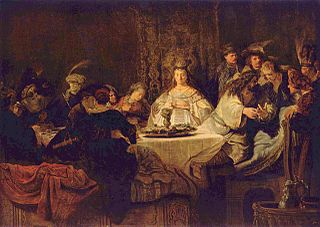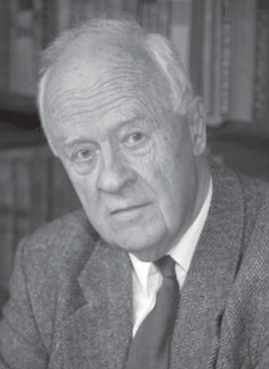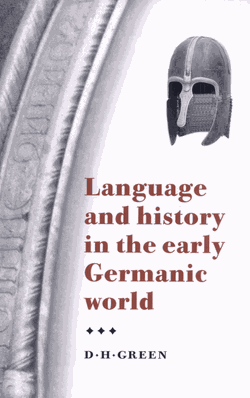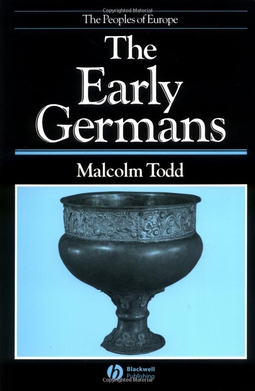
The Germanic peoples were historical groups of people that once occupied Northwestern and Central Europe and Scandinavia during antiquity and into the early Middle Ages. Since the 19th century, they have traditionally been defined by the use of ancient and early medieval Germanic languages and are thus equated at least approximately with Germanic-speaking peoples, although different academic disciplines have their own definitions of what makes someone or something "Germanic". The Romans named the area belonging to North-Central Europe in which Germanic peoples lived Germania, stretching east to west between the Vistula and Rhine rivers and north to south from southern Scandinavia to the upper Danube. In discussions of the Roman period, the Germanic peoples are sometimes referred to as Germani or ancient Germans, although many scholars consider the second term problematic since it suggests identity with present-day Germans. The very concept of "Germanic peoples" has become the subject of controversy among contemporary scholars. Some scholars call for its total abandonment as a modern construct since lumping "Germanic peoples" together implies a common group identity for which there is little evidence. Other scholars have defended the term's continued use and argue that a common Germanic language allows one to speak of "Germanic peoples", regardless of whether these ancient and medieval peoples saw themselves as having a common identity. While several historians and archaeologists continue to use the term "Germanic peoples" to refer to historical people groups from the 1st to 4th centuries CE, the term is no longer used by most historians and archaeologists for the period around the Fall of the Roman Empire and the Early Middle Ages.

In prosody, alliterative verse is a form of verse that uses alliteration as the principal device to indicate the underlying metrical structure, as opposed to other devices such as rhyme. The most commonly studied traditions of alliterative verse are those found in the oldest literature of the Germanic languages, where scholars use the term 'alliterative poetry' rather broadly to indicate a tradition which not only shares alliteration as its primary ornament but also certain metrical characteristics. The Old English epic Beowulf, as well as most other Old English poetry, the Old High German Muspilli, the Old Saxon Heliand, the Old Norse Poetic Edda, and many Middle English poems such as Piers Plowman, Sir Gawain and the Green Knight, Layamon's Brut and the Alliterative Morte Arthur all use alliterative verse.

Germania, also called Magna Germania, Germania Libera, or Germanic Barbaricum to distinguish it from the Roman province of the same name, was a historical region in north-central Europe during the Roman era, which was associated by Roman authors with the Germanic people. The region stretched roughly from the Middle and Lower Rhine in the west to the Vistula in the east. It also extended at some point as far south as the Upper and Middle Danube and Pannonia, and to the known parts of southern Scandinavia in the north. Archaeologically, these people correspond roughly to the Roman Iron Age of those regions. While dominated by Germanic people, Magna Germania was also inhabited by a few other Indo-European people.

A riddle is a statement, question or phrase having a double or veiled meaning, put forth as a puzzle to be solved. Riddles are of two types: enigmas, which are problems generally expressed in metaphorical or allegorical language that require ingenuity and careful thinking for their solution, and conundra, which are questions relying for their effects on punning in either the question or the answer.

The Sciri, or Scirians, were a Germanic people. They are believed to have spoken an East Germanic language. Their name probably means "the pure ones".

The Ludwigslied is an Old High German (OHG) poem of 59 rhyming couplets, celebrating the victory of the Frankish army, led by Louis III of France, over Danish (Viking) raiders at the Battle of Saucourt-en-Vimeu on 3 August 881.
Peter John Heather is a British historian of late antiquity and the Early Middle Ages. Heather is Chair of the Medieval History Department and Professor of Medieval History at King's College London. He specialises in the fall of the Western Roman Empire and the Goths, on which he for decades has been considered the world's leading authority.
Brian Oliver Murdoch is a British philologist who is Emeritus Professor of German at the University of Stirling. He specializes in the study of early Germanic and Celtic literature, on which he has authored and edited several influential works.
Espen Hammer is Professor of Philosophy at Temple University. Focusing on modern European thought from Kant and Hegel to Adorno and Heidegger, Hammer’s research includes critical theory, Wittgenstein and ordinary language philosophy, phenomenology, German idealism, social and political theory, and aesthetics. He has also written widely on the philosophy of literature and taken a special interest in the question of temporality.

Warfare seems to have been a constant in Germanic society, and archaeology indicates this was the case prior to the arrival of the Romans in the 1st century BCE. Wars were frequent between and within the individual Germanic peoples. The early Germanic languages preserve various words for "war", and they did not necessarily clearly differentiate between warfare and other forms of violent interaction. The Romans note that for the Germans, robbery in warfare was not shameful, and most Germanic warfare both against Rome and against other Germanic peoples was motivated by the potential to acquire booty.

Herwig Wolfram is an Austrian historian who is Professor Emeritus of Medieval History and Auxiliary Sciences of History at the University of Vienna and the former Director of the Institute of Austrian Historical Research. He is a leading member of the Vienna School of History, and internationally known for his authoritative works on the history of Austria, the Goths, and relationships between the Germanic peoples and the Roman Empire.
Old High German literature refers to literature written in Old High German, from the earliest texts in the 8th century to the middle of the 11th century.
Paul Wexler is an American-born Israeli linguist, and Professor Emeritus of linguistics at Tel Aviv University. His research fields include historical linguistics, bilingualism, Slavic linguistics, creole linguistics, Romani and Jewish languages.
William Franke is an American academic and philosopher, professor of Comparative Literature at Vanderbilt University. A main exposition of his philosophical thinking is A Philosophy of the Unsayable (2014), a book which dwells on the limits of language in order to open thought to the inconceivable. On this basis, the discourses of myth, mysticism, metaphysics, and the arts take on new and previously unsuspected types of meaning. This book is the object of a Syndicate Forum and of a collective volume of essays by diverse hands in the series “Palgrave Frontiers in Philosophy of Religion”: Contemporary Debates in Negative Theology and Philosophy. Franke's apophatic philosophy is based on his two-volume On What Cannot Be Said: Apophatic Discourses in Philosophy, Religion, Literature, and the Arts (2007), which reconstructs in the margins of philosophy a counter-tradition to the thought and culture of the Logos. Franke extends this philosophy in an intercultural direction, entering the field of comparative philosophy, with Apophatic Paths from Europe to China: Regions Without Borders. In On the Universality of What is Not: The Apophatic Turn in Critical Thinking, Franke argues for application of apophatic thinking in a variety of fields and across disciplines, from humanities to cognitive science, as key to reaching peaceful mutual understanding in a multicultural world riven by racial and gender conflict, religious antagonisms, and national and regional rivalries.

Dennis Howard Green was an English philologist who was Schröder Professor of German at the University of Cambridge. He specialized in Germanic philology, particularly the study of Medieval German literature, Germanic languages and Germanic antiquity. Green was considered one of the world's leading authorities in these subjects, on which he was the author of numerous influential works.
Philip Ross Bullock is a British academic. He is a Professor of Russian Literature and Music at the University of Oxford, a fellow of Wadham College, Oxford, and the academic director of The Oxford Research Centre in the Humanities (TORCH). He is the recipient of the 2009 Philip Leverhulme Prize for Modern Languages, and the author or editor of several books.
Carol Braun Pasternack was a professor of medieval English literature and language at the University of California, Santa Barbara (UCSB) from 1988 to 2013. She chaired the Medieval Studies department, and was also Dean of Summer Sessions at UCSB in 2011–2013.

Language and history in the early Germanic world is a book by Dennis Howard Green, the Schröder Professor of German at the University of Cambridge. It was published in hardback by Cambridge University Press in 1998. The book uses linguistic evidence for the study of early Germanic culture and history. A paperback edition was published by Cambridge University Press in 2000. An Italian translation was published in 2015.

The Early Germans is a book by archaeologist Malcolm Todd on the history and culture of the early Germanic peoples. It was published by Blackwell in 1992. The books was published as part of The Peoples of Europe series. A second revised edition was published in 2004. Translations have been published in numerous languages, including Italian, Czech, German and Russian.

The Codex Gissensis was a fragmentary parchment manuscript, a Gothic–Latin diglot containing texts of the Bible in Gothic on the left and Latin on the right.












